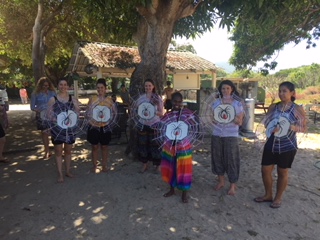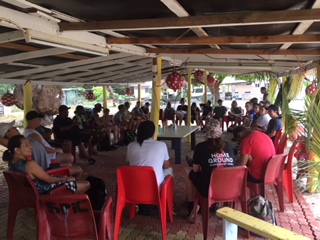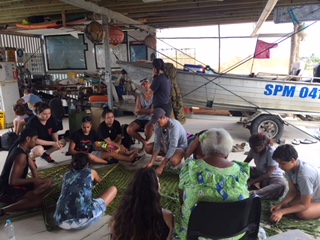Earlier this year, NAISDA teacher Craig Barry was announced as the inaugural recipient of the Joanne Harris Scholarship Fund Award for Recognition of Excellence in Training. The award recognises a NAISDA teacher who provides excellent support and guidance to our Developing Artists.
The recipient of this award is given the unique opportunity to attend NAISDA’s remote Cultural Residency with the Developing Artists. Following is Craig’s recount of his time spent in Moa Island in the Torres Strait as part of his award.
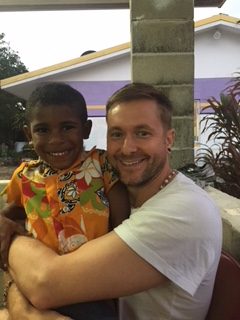
As the recipient of the 2017 Joanne Harris Scholarship Fund for Recognition of Excellence in Training Award, I was invited to attend the annual NAISDA Cultural Residency on Country. This year we traveled to Moa Island in the Torres Strait.
This experience was something I have wanted to participate in ever since joining the teaching team at NAISDA in 2012. Each year we watch as the Developing Artists (DAs) embark on a life-changing journey of self-discovery and cultural exploration, and we see the immense change in the DAs on their return. It is incredible to see how much this opportunity shifts them in such positive and empowering ways and I have always been curious as to why, and how this all happens.
2017 was my chance to witness firsthand not only what happens with the DAs, but what I experienced in my own understandings in the sensitivity and appreciation of the rich cultural heritage of Australia’s First Nations People.
I was immediately accepted into what I can only describe as the family unit, and immersed in every aspect of the teaching and learnings of traditional methodologies such as, dance, gardening, men’s business, cultural prop making and weaving.
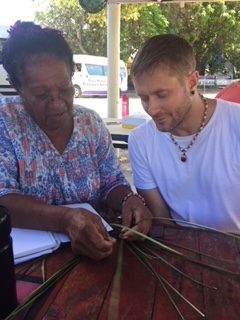
The powerful energy of the environment was at times invigorating and also exhausting, the Sager winds never ceased and you could feel the way in which the environment shaped the process of the day. Working with the tides, one of my favourite moments was standing in neck deep water drag netting when a large shark swam by me chasing a fish at speeds I didn’t know were possible.
Our days existed of meeting in the morning after breakfast to disperse into groups to different activities. These activities lasted most part of the day and finished with a community dinner (Kai Kai) where I was able to sample the traditional foods of the Torres Strait such as Turtle, Dugong and Sop Sop. We then completed the night with practice of the Torres Strait Island cultural dances, language and song.
Many days were filled with long in-depth discussions with the local elders where we learnt about the history and journey of their people. I was lucky to be taken on a private tour of the island meeting more local families and looking at some of the old building practices and historic cultural sites. For most part of a day I sat with an elder and was taught traditional basket weaving techniques while been told stories and practices of the culture.
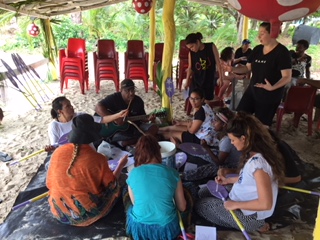
The moment I was invited to dance with the DAs, I felt the rich and energizing earth beneath my feet and felt an instant connection to the land and could truly appreciate the essence and power of the cultural dance.
This is an experience I will never forget and one that has given me so much more appreciation of the importance of the sharing and continued connection to Country and Community. I am grateful to NAISDA for allowing me this opportunity to develop not only as a teacher but more fundamentally as a person.
Craig Bary
